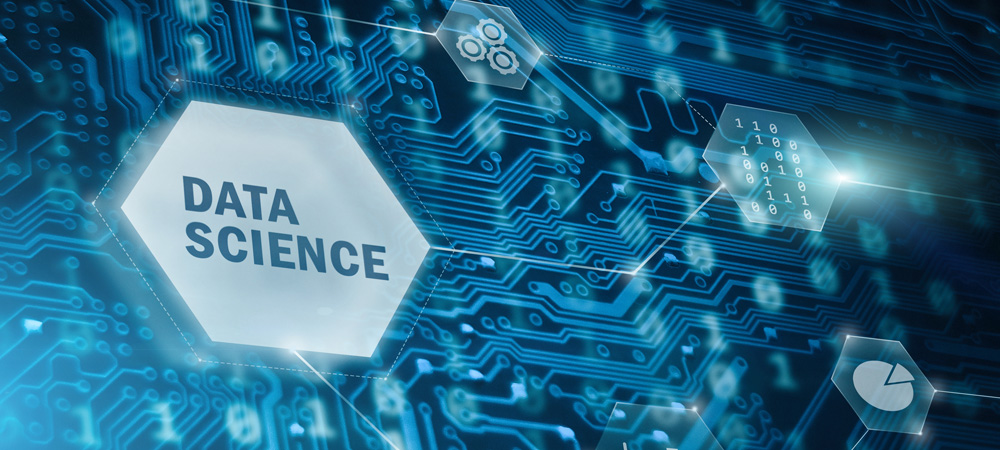The Future of Data Science: Trends Shaping the Next Decade


Data Science is one of the trending fields for bringing out the innovation in industry, business, healthcare, etc. The pace at which this field is evolving, it will definitely bring new trends and impacts. These evolving trends will help shape the future of data science and deal with global challenges, while considering ethical concerns. With this field expanding widely, data science programmes and postgraduate degrees including MTech CSE in Data Science help in providing students with the necessary skills to pace themselves.
Some of the innovative trends which can help in shaping the future of data science:
1. Automated and Augmented Data Science
Automated and augmented data science are the branches of data science which help in taking efficient decision making. Augmented Analytics utilise the integrated techniques of AI and ML to automate the process of data preprocessing and analytics. This further helps the data scientists to get deeper insights into the analysed results obtained. On the other hand, automated data science employs a combination of intelligent algorithms and automation techniques to speed up the process of data analysis.
The rapid advancement of automation and AI-driven technologies has made an MTech in Data Science a must-have degree, an essential for staying ahead in this evolving landscape.
2. Integrating Data Science with AI
The integration of data science and AI leads to the creation of intelligent systems which can help solve complex problems and make real-time decision making. This further enhances the emergence of innovation in reinforcement and unsupervised learning models. For example, today’s transformer models are on pace e.g. deep learning and transformer models (such as GPT and BERT) which are setting benchmarks in different areas of NLP, computer vision, predictive analytics, and data management etc.
3. Data for Sustainable Development
In the recent data-driven world, sustainability development has become a prime concern which supports optimised use of resources, keep monitoring of the climate and environmental changes. Leveraging the insights from Data Science helps in finding solutions to the problems such as rising crises in public health, social inequality, and degradation of natural resources, etc. Thus, the initiative of utilising data for social good by applying advanced data science techniques will outgrow in near future to address the solutions to the above issues discussed. Many universities offering MTech in Data Science have curriculum focused on sustainability to effectively prepare the students for such societal challenges.
4. Enhanced Privacy and Ethical Considerations
The vast amount of information spread has raised concerns about privacy, security and ethics. Thus, the technologies which allow an individual or organization to provide access to data without affecting the privacy rules and regulations are required. With this, ethical AI is reshaping the research practices in the field of AI where transparency, bias or misinformation mitigation and advanced secure frameworks are required to ensure that decisions are accurate and reliable.
5. Edge Computing with Decentralised servers
Since the advent and rise of IoT devices, demand for edge computing increases where real-time data analysis is performed. Thus, there seems a shift from centralised data processing to decentralised solutions where data is processed and analysed at edge, closer to the source. This computing has its applications in various areas like real-time monitoring of health data, smart cities and self-driving cars, etc. To address these demands, MTech in Data Science students are prepared to focus on IoT and edge computing as it helps them in gaining expertise in designing decentralised systems providing accurate real-time analysis.
This approach is being widely adopted in smart cities, autonomous vehicles, and healthcare applications, where real-time processing is critical. MTech in Data Science students focusing on IoT and edge computing will gain expertise in designing decentralized systems for faster, more secure data handling.
6. Quantum Computing and Data Science
Quantum computing, unlike classical computing, instigates the future of data science by providing solutions to complex problems in quick response time. It requires the need to develop advanced algorithms to resolve issues. It has its applications in the areas of cryptography, optimization, Artificial intelligence, IoT, drug analysis etc
7. Data Science in Healthcare
The amalgamation of data science and healthcare instigates new areas which expands drastically in the fields of genomics, personalised medicine and drugs. The need to implement AI-driven models which play a crucial role in predicting the patient’s diseases, optimising their plans of treatment, and clinical trials. These further dramatically transform healthcare potential and thus enhance the quality of treatments worldwide. MTech in Data Science programmes are rapidly incorporating biomedical analytics and AI in healthcare, equipping the future professionals with the ability to innovate in the medical field.
8. Adaptive Learning
In today’s rapidly evolving times, the need to accommodate continuous learning where new tools and techniques, advanced methodologies and frameworks emerge. It requires the professionals to become adaptive to new learning and hands-on to new technologies. This adaptive learning helps to combine the expertise of data science with interdisciplinary skills which revolutionise the fields of business, biology, and environment, and others. This further helps to solve complex real-life problems.
9. Automated Machine Learning
Automated Machine Learning helps to automate the machine learning tasks which helps in model development in areas of data engineering, feature engineering, feature selection etc. These tasks help in solving complex real-life problems. With specialised data science or machine learning techniques, it helps to spread the area of machine learning to a wide range of users. In such a scenario, a holistic MTech in data science programme should focus on AutoML, enabling students to build complex models with minimal manual intervention.
Conclusion
With new applications, innovative technology, and shifting societal objectives, the next decade promises to be an exciting time for data science. With the rising demand for Data scientists, enrolling in The NorthCap University’s MTech CSE in Data Science will help the students in positioning themselves at the center of international initiatives. They will become equipped with skills to address urgent challenges and open up new opportunities in areas including automation, artificial intelligence, and privacy breakthroughs that transform the industry.
Our cutting-edge data science programmes ensure that the students gather lifelong learning and ethical responsibility in addition to technical proficiency which will help them succeed in this changing environment. By adopting these trends, MTech CSE in Data Science at NCU will keep pushing innovation and advancement, creating a more intelligent and sustainable future for everybody.
Authored By

Dr. Manvi Breja
Assistant Professor (Senior Scale)
Department of CSE
NorthCap University, Gurugram
